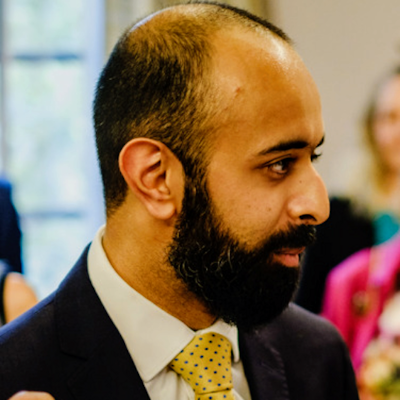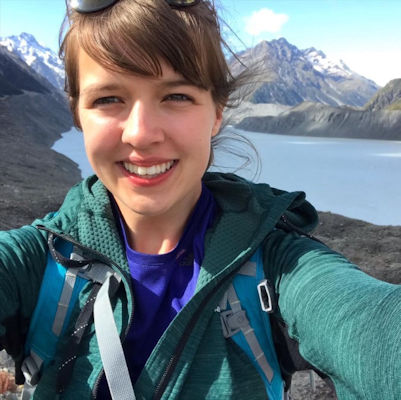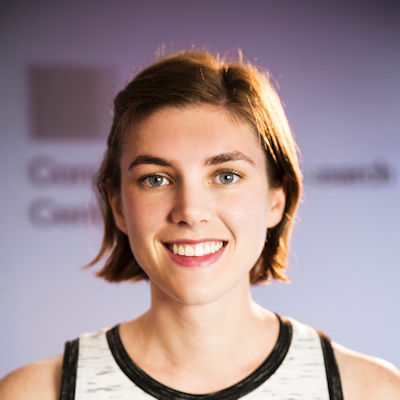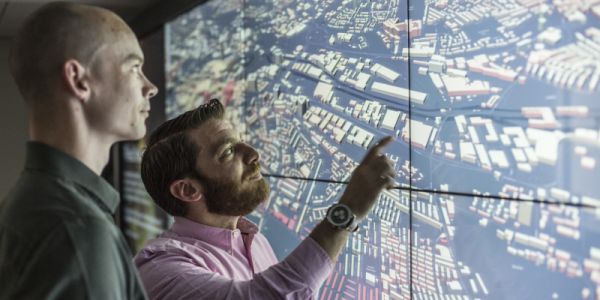Urban analytics
Institute for Data Analytics
Leeds Institute for Data Analytics (LIDA) uses data collections to drive research, policy development and public initiatives
Find out more
Urban analytics
Cities are centres of culture, innovation and growth: they generate an enormous amount of data, which is used by modellers and data scientists to create solutions to modern challenges. Our urban analytics experts work with key decision makers, public bodies and businesses to create advanced models that transform this wealth of data into key insights, driving a smarter future for urban life.
Our Urban Analytics researchers are working with key decision-makers in society to bring beneficial change to cities
Contact us
If you have an enquiry about the urban analytics research theme, please contact Professor Ed Manley.
Pioneering impact in urban settings
Many of our researchers are based in the Centre for Spatial Analysis and Policy, the Institute of Transport Studies, and Leeds Institute for Data Analytics. The University has a longstanding collaboration with the Property Analytics function at Sainsbury’s. If you would like to discuss an area of research in more detail, please contact the individual staff member.
Improving emergency management strategies
Through advanced data science, Dr Nick Malleson is offering insight that could change the way we understand and respond to crime and health issues in urban life, and and prepare for natural disasters.
More on Improving emergency management strategiesModelling the future of cities
Predicting how cities will develop in the future is being made easier for policymakers, through advanced modelling techniques being developed by Professor Alison Heppenstall.
More on Modelling the future of citiesIncreased mobility for elderly citizens
Elderly city dwellers could benefit from demand-responsive automated transport in the future, through the modelling work of Professor Ed Manley.
More on Increased mobility for elderly citizensRebuilding business after COVID-19
Leeds' longstanding expertise in microsimulation modelling, developed by Professor Mark Birkin, will help businesses to rebuild following the COVID-19 pandemic.
More on Rebuilding business after COVID-19Transforming infrastructure, planning and policy
Government agents, key decision-makers and planners are transforming essential systems and services as a result of sophisticated analytical insight developed by Dr Nik Lomax.
More on Transforming infrastructure, planning and policyRepresenting insights through visual analytics
Policing forces, political scientists, and transport planners are using bespoke data visualisation tools developed by Dr Roger Beecham. His methods are aiding the COVID-19 pandemic.
More on Representing insights through visual analyticsCollaborative links
Our expertise is strengthened by the University's interdisciplinary culture. Through partnerships, internal and external collaborations, we foster research, civic engagement and business growth.
Leeds Institute for Data Analytics
Leeds Institute for Data Analytics (LIDA) strives to understand health and human behaviour and to cast light on the action required to tackle a wide range of social and environmental problems.
More on Leeds Institute for Data AnalyticsCentre for Spatial Analysis and Policy
The Centre for Spatial Analysis and Policy develops innovative ways of understanding business, society and the environment through sophisticated analyses of geographical behaviour.
More on Centre for Spatial Analysis and PolicyConsumer Data Research Centre
The Consumer Data Research Centre (CDRC) makes consumer data available for research use to give unique insight into societal and economic challenges.
More on Consumer Data Research CentreAlan Turing Institute
A University of Leeds partner, the Alan Turing Institute is pioneering the next generation of leaders and pushing the boundaries of data, and social sciences for the public good.
More on Alan Turing InstituteResearch degrees
Undertaking a PhD at Leeds will be a journey that will stimulate your passion for your subject and push you to reach your potential.
To browse funded projects, supervisors, research areas, and PhD opportunities, visit phd.leeds.ac.uk.

Annabel Whipp is studying for an integrated PhD as part of the Centre for Spatial Analysis and Policy research group, and is supervised by Dr Nick Malleson. Her research, titled ‘Building estimates of the ambient population: A case study of Leeds City Centre,’ is funded by the Economic and Social Research Council (ESRC). Annabel carries out her research in partnership with Leeds City Council.

Keiran Suchak is studying for a Centre for Doctoral Training (CDT) programme in Data Analytics and Society, alongside Leeds City Council. He is supervised by Dr Nicolas Malleson and Dr Jon Ward, and is based in the Leeds Institute for Data Analytics (LIDA). His research involves combining agent-based models with Big Data. The purpose is to facilitate real-time predictions of the population’s movements.

Fran Pontin is studying for an integrated MSc and PhD in Data Analytics and Society, delivered by a Centre for Doctoral Training at Leeds. She investigates the potential for data generated by fitness tracking apps to give insight into the behaviour of people, on a larger scale, in relation to physical activity. Her PhD is part-funded by Active Inspirations, a technology company which aspires to encourage people to lead more active lifestyles.

Kellyn Arnold is a Postdoctoral Research Fellow who uses both statistical- simulation-based modelling as part of her interdisciplinary research. She is based in the Leeds Institute for Data Analytics (LIDA), where she collaborates with colleagues in the Schools of Medicine and Geography.

David’s research focuses on investigating how inter-city transport links can allow cities to specialise in sectors in which they have a competitive advantage. He is pursuing his PhD in the Institute of Transport Studies after returning to University from working in the industry. He belongs to the Spatial Modelling and Dynamics and Economics and Appraisal research groups.
CDT in Data Analytics and Society
The Centre for Doctoral Training (CDT) in Data Analytics and Society is an exciting programme that offers the opportunity to undertake a four-year funded integrated PhD and MSc. It brings together expertise from different disciplines, combining social science with methods from computing, mathematics and the natural sciences.
Study with us
We offer a range of Masters courses that give data scientists of the future the chance to develop their data analytics skills and apply them to scenarios within the real world.











